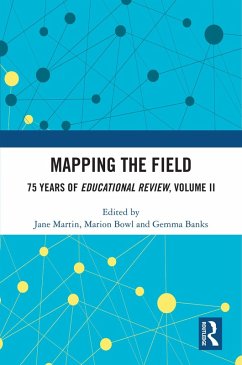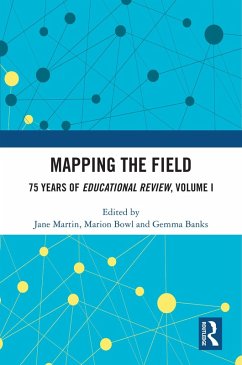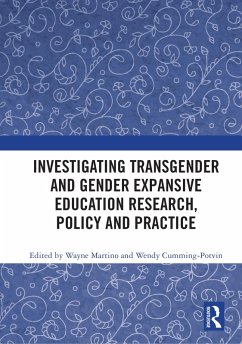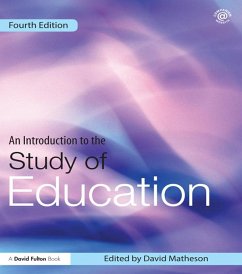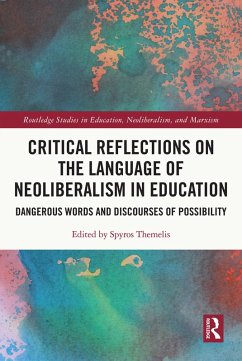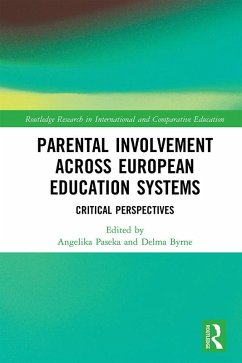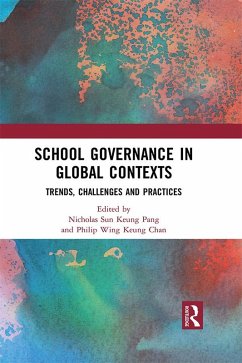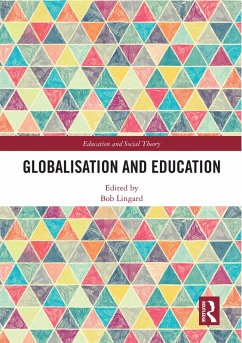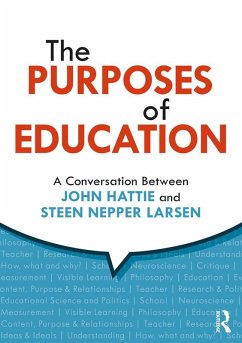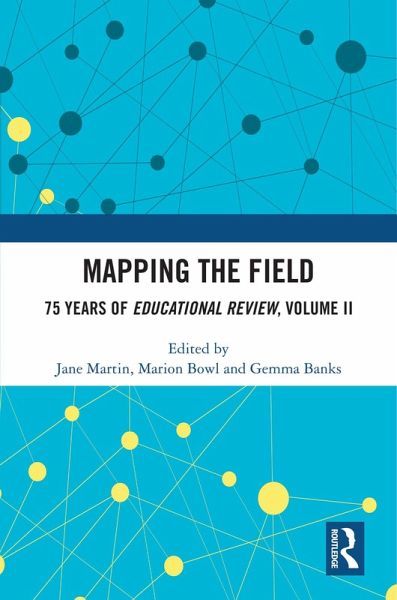
Mapping the Field (eBook, PDF)
75 Years of Educational Review, Volume II
Redaktion: Martin, Jane; Banks, Gemma; Bowl, Marion
Versandkostenfrei!
Sofort per Download lieferbar
38,95 €
inkl. MwSt.
Weitere Ausgaben:

PAYBACK Punkte
19 °P sammeln!
From its origins in the University of Birmingham's then Institute of Education in 1948, Educational Review has emerged as a leading international journal for generic educational research. Seventy-five years on, Mapping the Field presents a detailed account of education theory and research, policy, and practice through the lens of key articles published in the journal over this timespan.Volume II opens with Part I, a collection of articles examining teachers' job (dis/) satisfaction and stress, and the gendered composition of the teaching workforce. Articles in Part II trace a shift in academic...
From its origins in the University of Birmingham's then Institute of Education in 1948, Educational Review has emerged as a leading international journal for generic educational research. Seventy-five years on, Mapping the Field presents a detailed account of education theory and research, policy, and practice through the lens of key articles published in the journal over this timespan.
Volume II opens with Part I, a collection of articles examining teachers' job (dis/) satisfaction and stress, and the gendered composition of the teaching workforce. Articles in Part II trace a shift in academic focus from schools seen as families/communities, to the parent-school relationship. The concepts of inclusion and equality-and strategies for their fulfilment in education-are interrogated in Part III. The volume concludes with Part IV, in which diverse identities in the education field are represented.
Curated and introduced by the editors, the articles included in both volumes of Mapping the Field represent a careful selection from the work of scholars whose ideas have been, and continue to be, influential in the field of education. Overall, this major text covers a wide range of topics and offers original insights into educational policy, provision, processes, and practice from around the world.
Volume II opens with Part I, a collection of articles examining teachers' job (dis/) satisfaction and stress, and the gendered composition of the teaching workforce. Articles in Part II trace a shift in academic focus from schools seen as families/communities, to the parent-school relationship. The concepts of inclusion and equality-and strategies for their fulfilment in education-are interrogated in Part III. The volume concludes with Part IV, in which diverse identities in the education field are represented.
Curated and introduced by the editors, the articles included in both volumes of Mapping the Field represent a careful selection from the work of scholars whose ideas have been, and continue to be, influential in the field of education. Overall, this major text covers a wide range of topics and offers original insights into educational policy, provision, processes, and practice from around the world.
Dieser Download kann aus rechtlichen Gründen nur mit Rechnungsadresse in A, B, BG, CY, CZ, D, DK, EW, E, FIN, F, GR, HR, H, IRL, I, LT, L, LR, M, NL, PL, P, R, S, SLO, SK ausgeliefert werden.




